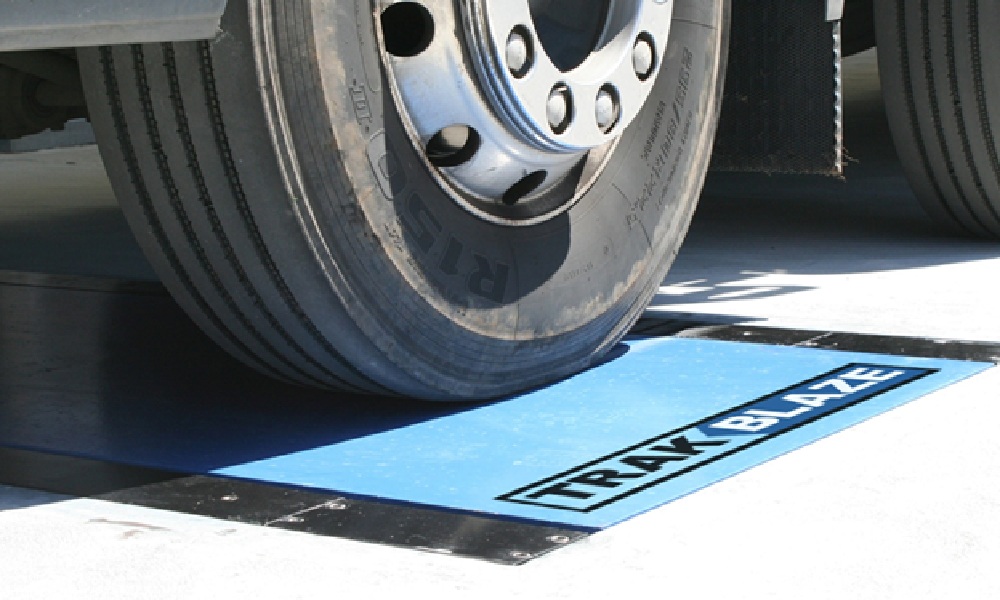
Must-Have Features in a Vehicle Weighing System
Vehicle Weighing Systems help you determine the weight of vehicles arriving at and leaving a job site for legality, safety, and operation optimisation. So, such scale is a must-have for any business involved in logistics, construction, mining, or transportation, but simply having one isn’t enough.
More importantly, you need an accurate and suitable weighing system to ensure efficiency, safety, and to stay within legally permissible weight limits.
But what makes any vehicle weighing system effective? What do you need to look for in a scale to get the most out of its benefits?
Let’s explore the must-have key features every modern vehicle weighing system should offer.
Accurate Weight Measurement: The Backbone of Operations
The most basic function of any weighing system is to provide the correct weight readings. Inaccuracies can result in costly mistakes, from overloading the weight limits to underloading the vehicles or even miscalculating the materials, which can affect your project timelines and safety standards.
So, when purchasing a Vehicle Weighing System, you must opt for one with advanced technologies. Weighbridges employ load cells and sensors to provide real-time weight data, ensuring that the reading is accurate and reliable regardless of the prevailing conditions outside.
Accurate measurement can benefit almost all industries. For instance, in logistics, knowing a load’s weight helps optimize fuel use, and managing weight in the mining industry ensures trucks carry the right load without the risk of overloading.
Durability and Reliability: Constructed to Withstand Harsh Environments
Scales used in harsh environments, like mining sites and construction sites, are often subject equipment to extreme weather and rough handling.
Therefore, your vehicle weighing system should be built with strong materials that can handle jolts and constant vibration, like the FORCE 2&4 – Mining Truck Scale.
In fact, you can find many systems with added features like IP-rated enclosures, which allow operations to be performed in dusty/wet conditions without the effects of damage and degradation. Eventually, this durability leads to less downtime, lower maintenance costs, and longer-lasting operations.
Real-Time Data Processing and Analytics: The Key to Operational Efficiency
When weight reports or data are delayed, you may experience missed opportunities and inefficiencies, especially in such a fast-moving industry. Real-time data processing, therefore, is an indispensable feature you should have in a modern vehicle weighing system.
With real-time monitoring, you can make instant business decisions, such as rerouting trucks to increase fuel efficiency or reshuffling vehicles based on each car’s weight.
Data analytics can also allow a business to understand how best to distribute a load for optimal results and also ensure that equipment is fully utilised at any one time. For example, mining companies can weigh data to monitor truck loads and, where applicable, optimise the number of trips, reducing fuel consumption.
Moreover, the real-time data integration with fleet management systems gives you an overview of operations and enhances decision-making at every level.
Smoother Integration with Existing Systems: Simplification of Operations
Nowadays, a modern weighing system for a vehicle is not just a device on its own; instead, it must be integrated into your fleet management systems, inventory systems, and other operational tools. Why should it be integrated in such a way?
The reason is quite simple: this simplifies workflows and manual errors, making data transfer automated in nature. Be it for a small organisation operating a few trucks or a big concern with hundreds of vehicles on the road, this weighing system software will seamlessly blend with your existing systems to enhance your efficiency at work. For instance, INFINITY – Low/High-Speed Train that uses advanced Weigh In Motion (WIM) updates data from your transport management system ensures accurate, real-time data is always available without relying on error-prone human input.
Easy Interface: Ease of Accessibility and Control at Fingertips
Advanced technologies cannot serve any purpose if they are too difficult to operate. For this very reason, user-friendly interfaces are one of the key elements in any vehicle weighing System.
Touchscreen display systems, remote monitoring, and cloud connectivity provide additional control and accessibility to the operator. Likewise, the more intuitive the interface, the quicker users can review the data, make decisions on the spot, and take immediate action on the status of their vehicles. With real-time data available on mobile devices or web-based dashboards, you can make adjustments fast enough to ensure increased productivity at minimal human error, both in-office and in-field.
Safety and Compliance: Protect Your Fleet, Protect Your Bottom Line
The weight of heavy vehicles is a big concern for business ventures, especially in terms of legality and safety. A reliable weighing system addresses this by preventing overloading beyond the legal limits—many automatic overload warning mechanisms alert operators to avoid fines, road damage, and accidents.
Apart from the compliance issue, these systems also help to save your vehicles and drivers from overloading risks, such as tyre damage and structural strain.
Scalability and Flexibility: Growing with Your Business
A great vehicle weighing system must be able to scale and adapt to meet the growth of your fleet and your operational needs. Whether it’s new types of vehicles, upgraded equipment, or expanded sites, your system should evolve with you and eliminate the need for a complete replacement.
When you choose scalable weighing systems, you can easily upgrade your system with features like weight stations or sensors to meet your changing business needs.
Cost Efficiency and ROI: How to Maximise Your Investment
While the initial cost of a vehicle weighing system can be costly, the returns are clear. These systems will save you from overloading fines, fuel consumption, longer car lifetimes, and fleet management, which contribute to notable cost savings over time.
Conclusion: How To Select The Appropriate On-Vehicle Weighing Scale
A vehicle weighing system must have accuracy, durability, real-time data processing, scalability, and easy integration. These features are essential for optimising your operations, ensuring safety, and reducing costs.
If you’re interested in purchasing a vehicle weighing system that meets these criteria, Trakblaze Pty Ltd is a trusted provider in Australia, specialising in solutions for the rail, road, mining, and aviation industries.
With over 90 years of experience, they offer products like FORCE1 – Truck Axle Scale, MTW – Mobile Train Weigher, AVIATOR – Portable Aircraft Weighing System, etc. To explore more, visit Trakblaze’s products.



